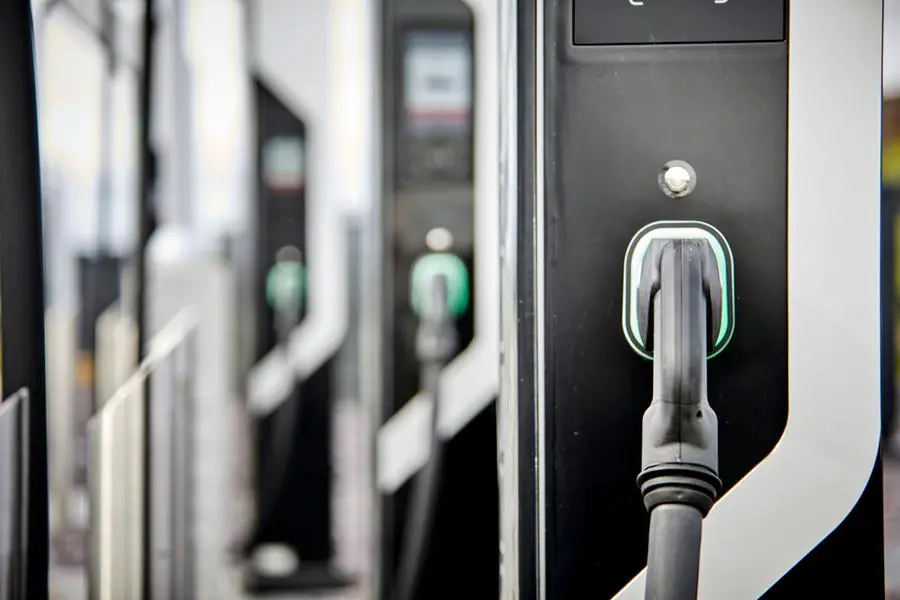PHOTO
The World Bank has warned that the power systems in Africa and other developing countries will not comfortably sustain the rise in demand caused by increased uptake of electric vehicles.
The bank’s Energy Sector Management Assistance Programme (ESMAP), in a report assessing the impact that EVs will have on power systems, says the increased adoption of electric mobility may worsen the challenges facing developing countries’ power systems.
As more people turn to EVs in efforts to reduce greenhouse emissions, the global energy consumption is expected to increase significantly, altering daily load curves and modifying the peak load amount, duration, and timing, the report says.
Read: Energy sector seeks financing solutions tailored to Africa’s needsAs a result, this will put more stress on power systems, impacting the reliability and quality of electricity across the globe, but Africa’s grids are more vulnerable as their energy infrastructure are much less developed and unreliable.“The power system infrastructure [in developing countries] especially continues to provide defective services and is vulnerable to external shocks,” Esmap says in the report.“Grids, on both transmission and distribution levels, are, in many cases, unreliable because of inadequate capacity, lack of maintenance and reinforcement, and a host of other operational issues.”Statistics from the International Energy Agency (IEA) shows that electric vehicle uptake has been increasing, accounting for 14 percent of all vehicles globally in 2022, up from 10 percent in 2021.
Read: Private sector crucial for Africa’s energy driveThis year alone, over 2.3 million EVs were sold in the first quarter, and IEA forecasts that about 14 million will have been sold by the end of the year, a 35 percent increase from last year’s sales.
The demand for electric energy is expected to rise with the continued increase in EV uptake. IEA data shows that in 2021, EVs consumed 55 million megawatt-hours of electricity, about 0.2 percent of global energy consumption.
By 2030, it is projected that EVs will consume up to 4 percent of total energy consumption, and further rise to 10 percent by 2040, putting more strain on national grids.
From an analysis by IEA, if all governments comply with the Paris Agreement and commit to the net-zero emissions goal, EVs will consume up to 1.17 billion MWh of electricity annually in 2050.“While the impact on total electricity demand may not cause substantial impediments for the electric grid, EV charging may have major consequences on the power system load profile,” the report reads.
Offsetting the increased demand will require increased generation, which Africa and other developing countries may not have the capacity to. It will also need better transmission lines to reduce risk of congestion, and improved distribution systems to avoid overloading, which could lead to increased power losses.
Bolstering e-mobilityIn many African countries, the report says, a myriad of challenges limits the improvement of generation capacity, transmission and distribution systems, meaning they might not be ready for full-scale transition to EVs.
Read: Is it time for energy transition in Africa? That’s the questionAccording to the research, these issues include high investment needs that aren’t met, poor market regulation, reliability and security of electricity access challenges, insufficient management and standards among others.
To ensure that Africa and other developing countries across the globe are ready for the rise in EV uptake, Esmap says governments will need to comprehensively assess the impact that EVs will have on their power systems in the context of their countries.“Planners and decision-makers, in particular those in developing countries, need to consider the local social, economic, infrastructure, and cultural factors as these factors may influence not only the scale and type of adoption but also the operation of and charging of vehicles,” the agency said in the report.
They also argue that government incentives to bolster e-mobility uptake should be accompanied by proper planning, as without that, people will be “reluctant” to transition to EVs, further slowing the transition. © Copyright 2022 Nation Media Group. All Rights Reserved. Provided by SyndiGate Media Inc. (Syndigate.info).





















